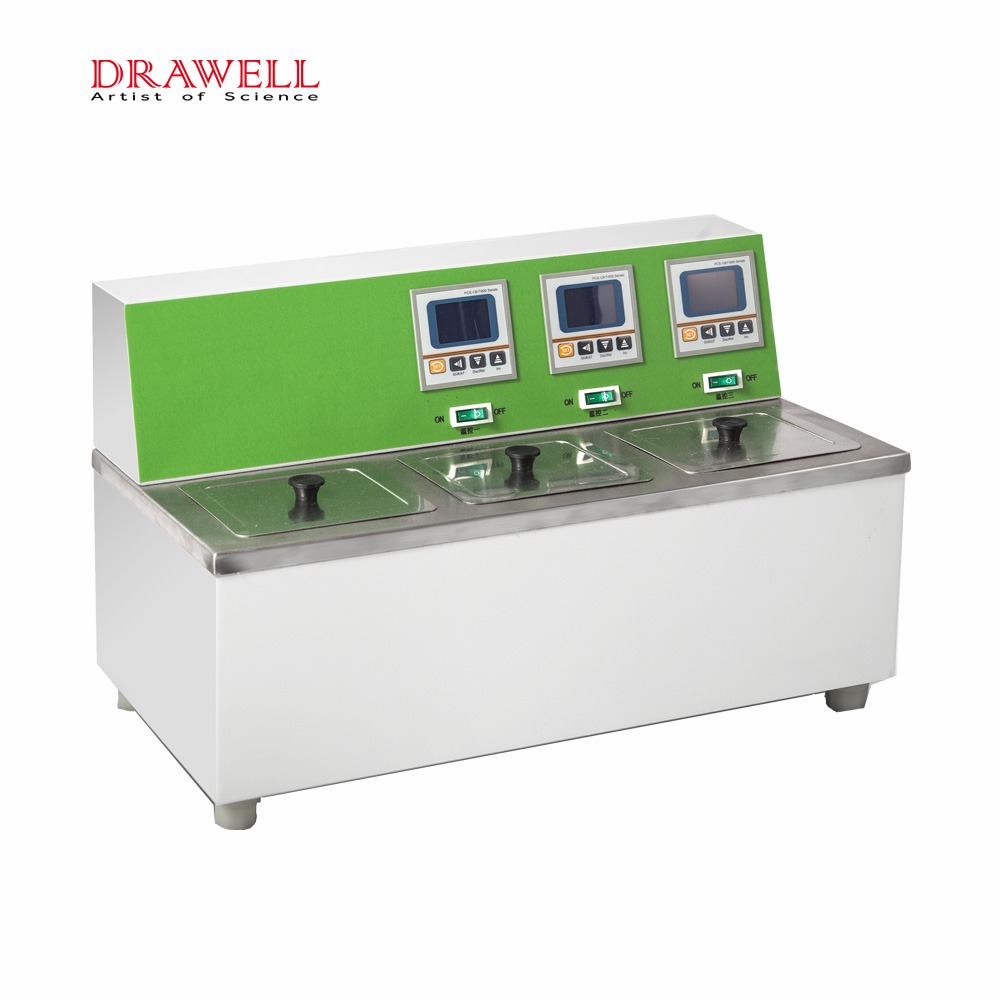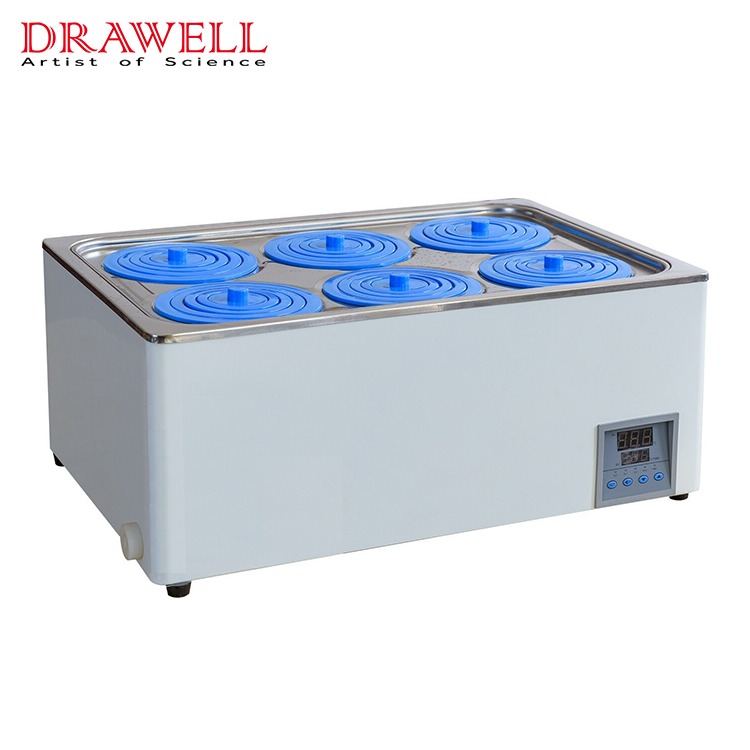A water bath is a staple piece of equipment in many laboratories, used across various disciplines for its ability to maintain a consistent and controlled temperature. Whether you’re working in chemistry, biology, or pharmaceuticals, water baths provide an efficient and reliable means of incubating samples, dissolving substances, or conducting temperature-sensitive experiments. In this article, we will explore the uses of water baths in different types of laboratories.
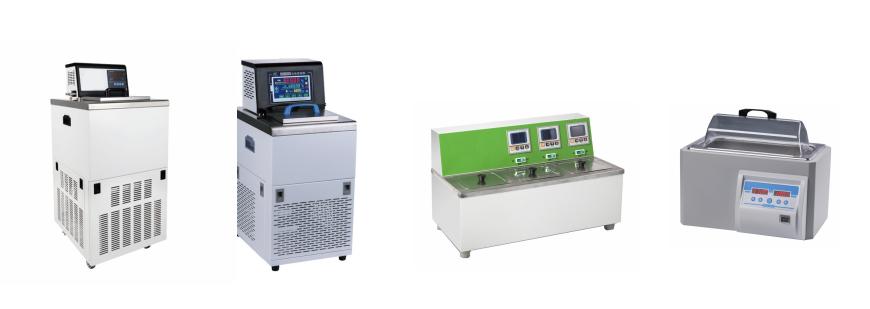
How Water Baths Work
Water baths operate by heating water to a desired temperature and maintaining that temperature for an extended period. They are designed to provide gentle, uniform heating, which is essential for experiments that require precise temperature control without the risk of overheating or direct contact with a heat source.
A typical water bath consists of a container filled with water, a heating element, and a thermostat or temperature control mechanism. The sample to be heated is placed in a vessel, often in a test tube or flask, and immersed in the water bath. The water acts as a heat transfer medium, ensuring that the temperature around the sample remains consistent. The thermostat allows users to set and maintain the temperature, while some advanced models come with a stirring mechanism or a circulation system to ensure uniform heat distribution throughout the bath.
Water baths are indispensable in laboratory settings due to their versatility and reliability.

Common Uses of Water Bath in the Laboratory
Water baths are versatile instruments used in various laboratory settings, offering benefits that go beyond simple heating.
Water Bath in Biochemistry and Microbiology Labs
Biochemistry and microbiology labs rely heavily on water baths for experiments that require precise temperature control, such as growing bacterial cultures or conducting enzyme assays.
- Incubation of Cultures: In microbiology, water baths are used to incubate cultures at a stable temperature. Bacteria and other microorganisms often need specific temperatures for growth, and a water bath ensures that this environment is maintained without fluctuations.
- Enzyme Reactions: In biochemistry, enzymes are often sensitive to temperature changes, and reactions are typically carried out at specific temperatures. Water baths help in controlling these conditions, ensuring the accuracy and consistency of enzyme kinetics studies or protein denaturation processes.
Water Bath in Chemistry Labs
In chemistry labs, water baths are essential for controlling the temperature of chemical reactions and processes, providing a safe alternative to open flame or direct heating methods.
- Conducting Chemical Reactions: Organic chemistry often requires reactions to be carried out at specific temperatures. Water baths allow for slow, controlled heating, reducing the risk of side reactions caused by sudden temperature spikes.
- Sample Dissolution: Water baths are used to dissolve solids into liquids, especially for substances that melt at low temperatures, such as waxes or gels. They prevent overheating and ensure the uniform melting of materials.
- Thawing Reagents: Water baths are also employed to thaw reagents that have been stored at low temperatures, bringing them to the correct working temperature gradually without damaging the sample’s integrity.
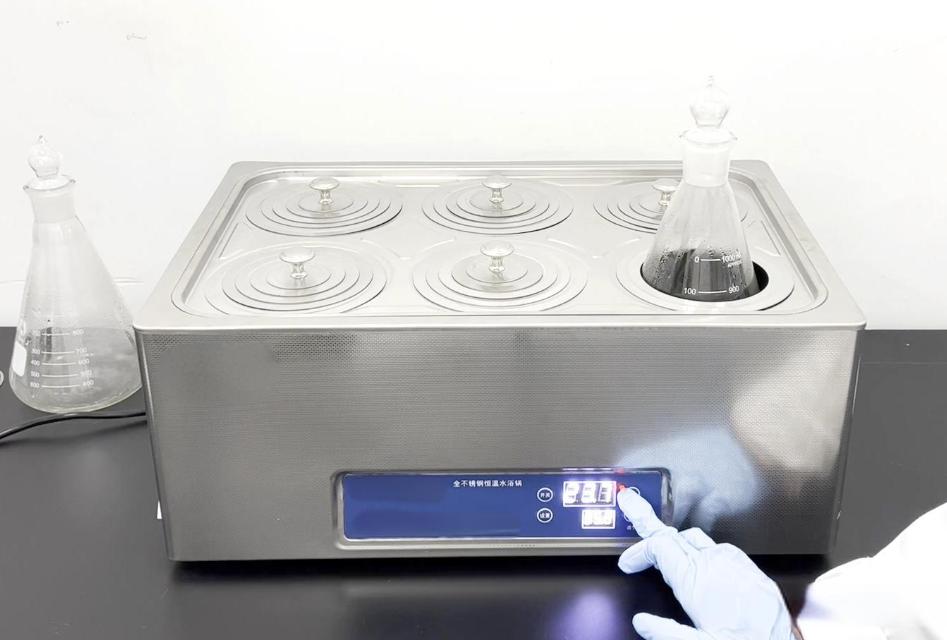
Water Bath in Medical Labs
Medical laboratories use water baths extensively for preparing samples, maintaining reagents at the correct temperature, and aiding in various diagnostic tests.
- Warming Blood Samples: Medical labs use water baths to warm blood or plasma samples to specific temperatures for diagnostic tests such as coagulation studies or blood typing.
- Maintaining Reagent Temperatures: Certain diagnostic reagents need to be pre-warmed for optimal performance in assays or tests, and water baths offer a reliable solution.
- Thawing Biological Samples: Frozen biological materials like tissue samples or cell suspensions are often thawed in a water bath to ensure they reach a usable temperature in a controlled manner.
Water Bath in Food Science Labs
In food science laboratories, water baths are used for both quality control and research, particularly in areas related to food safety and microbial analysis.
- Microbial Testing: Food science labs use water baths to incubate food samples for microbial growth tests, which are crucial for ensuring food safety.
- Dissolving Food Components: Water baths are used to dissolve fats, oils, and other food components for analytical purposes, ensuring uniform and gradual heating to avoid altering the food’s chemical properties.
- Testing Food Stability: Water baths can simulate specific temperature conditions to test the stability of food products, ensuring they remain safe and effective over time.
Water Bath in Pharmaceutical Labs
Pharmaceutical laboratories use water baths to ensure precise temperature control during drug development, stability testing, and quality control.
- Stability Testing: In drug development, water baths are used to simulate conditions that test the stability of pharmaceutical products over time, ensuring they meet industry standards.
- Dissolution Testing: Pharmaceutical formulations are often dissolved in water baths to test their solubility and ensure they perform correctly in biological systems.
- Enzyme and Protein Studies: Just like in biochemistry labs, pharmaceutical labs use water baths for studying enzyme reactions and protein behavior in drug development processes.
- Pharmaceutical analysis: Water baths are used for analytical techniques like HPLC sample preparation.
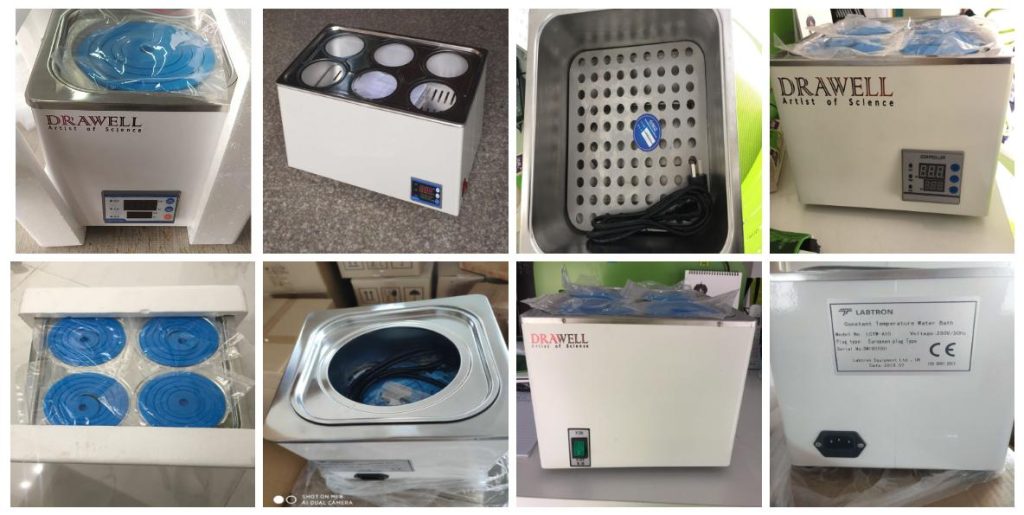
Water baths are one of the most versatile tools in any laboratory, offering precise temperature control across a wide range of applications, from biochemistry to pharmaceuticals. Their ability to provide gentle and uniform heating makes them indispensable for experiments that require stable conditions, ensuring accurate results and reliable outcomes. Whether you’re conducting enzyme assays, thawing reagents, or testing food safety, the water bath remains an essential instrument for scientific research and development. Once you are looking for a water bath supplier for your lab, please feel free to contact us. Drawell will give you quality laboratory equipments with reliable services.


